As someone who is particularly attracted to ideas contrary to my own and confronting them, I am always astonished when it is no longer allowed to challenge a line of reasoning without being ostracized from society. So, as it takes all kinds to make a world, allow me to play the old fart.
We were promised a scorching summer with enormous water stress. However, in the nearly half a century that I've been spending my summers in Nice, they've never been so cool and I've never seen so much rain on the weather news. The columnists in the mainstream media have taken the lead and are already lecturing everyone, reminding us that we need to stop navel-gazing and that the rest of the world is 'angry'. It's like being back in the cave; it's on a par with "I believe in science". What a step backwards in intelligence and knowledge: these two phrases annihilate at least 1,000 years of thought. What's even funnier is that in the same speech about "the Earth is angry", we're told that "scientists from the IPCC (Intergovernmental Panel on Climate Change) have said that": it's the magic phrase that ends all debate, and anyone who dares to question its sacredness is eliminated from the media game.
I know, I'm a reactionary old fart, but the privilege of age means that I've lived through some of these beliefs over the last half-century. Young people may not remember, but in the 70s and 80s we were told that there would be no more oil by 2000-10. In the 90s: that a hole in the ozone layer would scorch the earth by 2010. In 2000: that all the coasts would be under water by 2020 because of melting ice. And I'm not talking about the acid rain that would destroy Europe's forests, the Maldives that shouldn't have existed any more, the extinction of bees causing world famine, drought turning Europe into the Sahara, etc. etc. etc. You will reply that the "IPCC scientists have said that global warming is due to a greenhouse effect caused by human activity". I invite everyone to read the "schematic approach to the mechanism" of the greenhouse effect from France's largest public scientific research body, the CNRS (Centre national de la recherche scientifique) (LINK). It's a bit complex, requiring a minimum of concentration and an hour's time, but it's completely understandable and fascinating. In particular, you will understand that most of the energy for this mechanism comes from the sun and that the main contributors to the greenhouse effect are water vapour, CO2 (present in the atmosphere since time immemorial) and clouds. The greenhouse effect in itself is a good thing, as it means that we don't have to live through freezing nights on the part of the Earth that turns its back to the sun; without it, life would certainly not be possible on Earth.
I know, I'm a reactive old fart who doesn't want to understand that it's the consumption of fossil fuels that increases the concentration of CO2 in the atmosphere and therefore the greenhouse effect, which makes it hotter and causes climate change. I'm willing to believe that, but it's also important to put this statement in the context, because the climate is influenced by infinitely complex mechanisms. Just try to understand that most of the energy for the greenhouse effect comes from the sun and that the earth is a tiny dot, 1.3 million times smaller than its star. This tiny dot, where the temperature ranges from -80°C to +50°C, is heated by an enormous ball of fire 150 million kilometres away, where the surface temperature is 5,000-6,000°C, and the whole thing is immersed in a universe with an average temperature of -270°C. This ball heats parts of our planet alternately, because the Earth rotates on its axis at a speed of around 1,600 km/h and revolves around the Sun at 100,000 km/h; the Sun itself, which is just one star among many (there are at least as many stars in the universe as there are grains of sand on Earth), orbits the centre of the Milky Way at 850,000 km/h, which itself navigates through the other galaxies at nearly 2.3 million km/h. And I'm not talking about solar winds, cosmic rays, solar flares, solar cycles, supernova explosions, etc. etc. etc. Let alone the thousands of phenomena on Earth that are beyond our control, such as the volcanoes, that influence our climate. In fact, it's a miracle that there is so little variation in our climates. Normally, if you have a modicum of good faith, you should start to put things into perspective and ask yourself some questions.
I know, I'm a reactionary old fart, and the "IPCC scientists have said that". But apart from the fact that the IPCC experts tell us that they understand the mechanisms of the climate well enough to predict the worst in 50 years' time without being able to predict the weather in 15 days' time, let me quote a piece of information that was relayed by several media in May: the Sahel is greening up. For several years now, the region has been enjoying abundant rainfall and record harvests. And yet, by dint of miserabilistic and guilt-inducing reports, it has become a common belief among the French that, through our consumerist lifestyles, we are responsible for global warming, and therefore for the drought in this region, and that it is therefore justified, even a moral duty, to welcome the "climate refugees" from the Sahel. Now we pretend that this is just an old memory, and even call it "the climatic anomaly of the 1970s and 1980s". The media are wiping the slate clean of one of the greatest beliefs of the last 40 years... According to the 'specialists', climate change means that the return of rain to Burkina Faso, Mali, Mauritania, Niger and Chad is set to continue.
I know, I'm an old-fashioned twat, but why is it so horrible that climate change is bringing more water to people in the Sahel, and that it's not as cold in the polar regions and the countries of northern Europe? You're going to tell me that there are more natural disasters. But when I was young, I remember the great fires that took place in France almost every year, killing people. Ever since I was little, I've heard about the great tornadoes and hurricanes in America. Then you'll tell me about the receding glaciers... But the worst thing is when I say to myself, "What if I'm just a reactive old fart and the IPCC scientists are right? Because if that's the case, why are we doing virtually nothing about the urgency of the situation? The concentration of CO2 continues to rise. There are only two known solutions to prevent the machine from spinning out of control. The first is the one that has been proving its effectiveness for over half a century: nuclear energy. I know, you've been taught to say that nuclear power is bad, it's dangerous. But if you listen to the scientists, as I do now with those of the IPCC, nuclear power is by far and away the best way of producing energy, if you take into account efficiency, decarbonisation and the impact on human health (it's a bit like plane accidents, they're spectacular, but there are very few of them and in terms of the number of kilometres travelled, planes are much safer than motorbikes). When you listen to the specialists, it's also clear that we need to abandon the mirage of a balanced mix of renewable and nuclear energy, given the differences in the way they are distributed and used. As for the German-style energy transition, nobody wants it any more. Indeed, it is becoming increasingly clear that wind and solar power are far too local and partial solutions to satisfy the needs of humanity today. The experience of Germany, which has become the country of coal, is edifying. And the new gas factory that the EU is setting up around hydrogen to save the German model is not going to do anything about it. It's not for nothing that Gates, Buffet and Bezos are investing massively in nuclear power, and in particular in new-generation fast neutron reactors, whose main advantage is that they consume the radioactive waste from conventional power stations. This means that the nuclear cycle can be completed, eliminating one of the main problems posed by nuclear energy. France has been working on projects of this type for decades, unfortunately because of lobbying by environmentalists. The environmentalists have done so much to destroy the only source of energy capable of slowing down climate change that you have to wonder whether they aren't in fact just salesmen and lobbyists for the renewable energy industry. As Bill Gates puts it in very diplomatic terms so as not to alienate the entire environmentalist clergy: "It's hard to envision a future where we affordably decarbonise our electricity grid without relying more on nuclear power."
In fact, the real reactionaries are all those environmentalists who would like us to adopt the second solution to prevent climate change: to return to a bygone era when the population of the planet was less than one billion and fossil fuels did not exist. There is only one solution to drastically reduce the planet's population and implement a policy of degrowth: a global dictatorship that would make North Korea and China look like idyllic democracies. While some Westerners might be foolish enough to accept it, the rest of the world will not. We already know that this solution is impossible to implement. Instead of acknowledging this impossibility, some people prefer to fabricate all the signals that could cause our civilisation to collapse. They even almost wish it away, so certain are they that our society will destroy the planet and all the lovely bears on it. It would almost be funny if so many young people didn't sincerely believe in this story. What saddens me most are all those young people who believe that this fatal future is so inescapable that they have decided not to have children in order to live up to their convictions and spare their descendants the horrors of climate change. The same is true of all the sects that predict the end of the world in the very near future, but when it doesn't happen, their members commit suicide to make it happen nevertheless.
Read also
Russian propaganda in full swing, Moscow can thank Sarkozy & Berlin
The month of September may have seemed strangely quiet in France, but it was nonetheless a time of major upheavals.
Patrick Edery
Six great misunderstandings about Russia
To read the thoughts of many French opinion leaders and their supporters on social networks about Russia is to despair of humanity. They base almost all their analyses on misunderstandings that can only lead to erroneous conclusions.
Patrick Edery
What dangers hide behind AI and ChatGPT?
A decade ago we were told that manual jobs would disappear and that only professions with a strong creative or intellectual character would remain. But with the revolution in Artificial Intelligence (AI), such as ChatGPT or Mid-journey, it seems that journalists, lawyers, computer scientists, analysts, doctors, cartoonists, webmasters, actors, authors, scriptwriters and artists are also likely to disappear en masse.
Patrick Edery
Country Report: France, February 2023
Throughout February, France has been gripped by the "Pierre Palmade" affair, named after a famous comedian and showbiz star known to all French people. On 10 February, his car violently collided with another car whose passengers were a six-year-old boy, his father and his sister-in-law, a young pregnant woman.



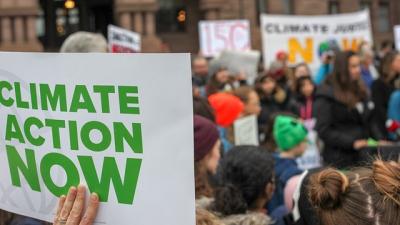

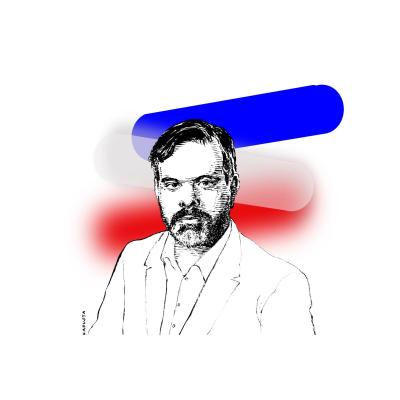
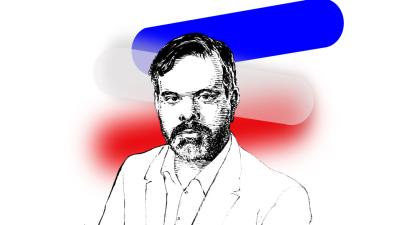

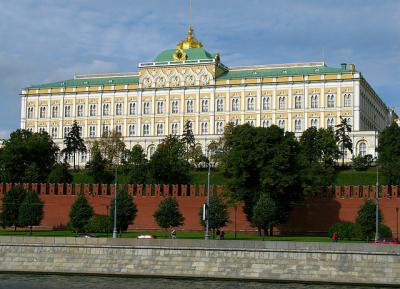



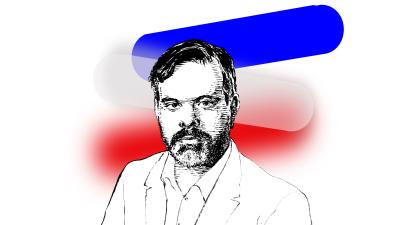

Comments (0)